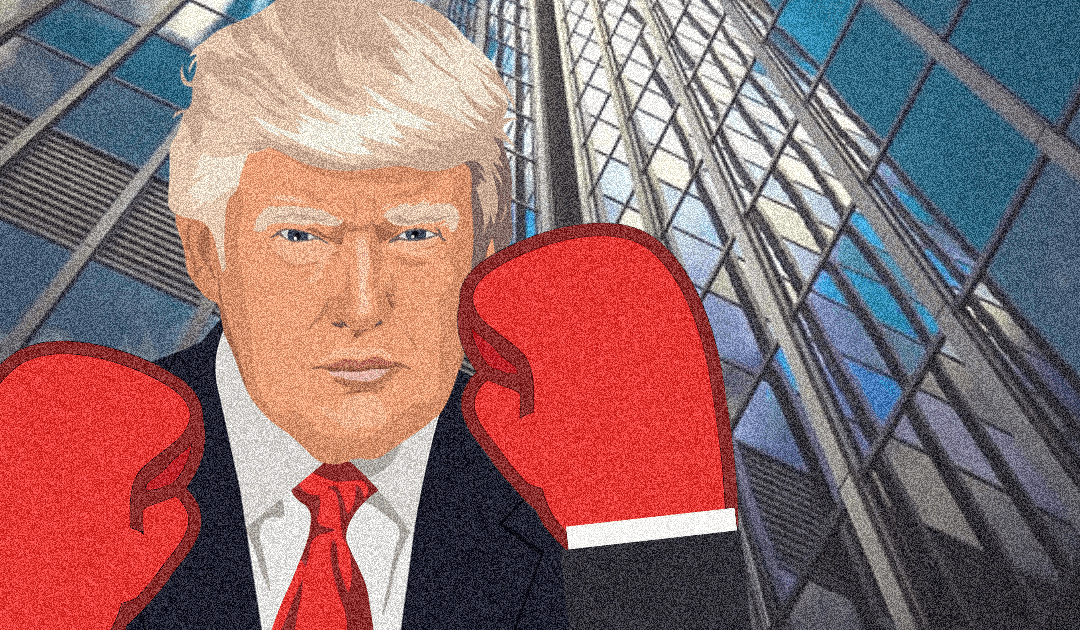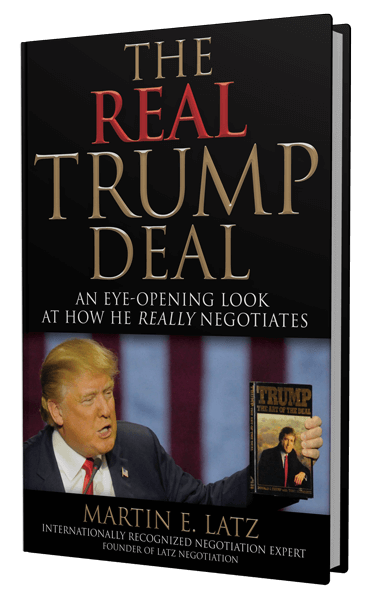Here, we address how Trump bullied subcontractors and stiffed many of them despite contracts obligating him to pay.
“Wait,” you might say. “Why would he do this if his subcontractors could sue him for their unpaid bills? Don’t they have sufficient leverage to force him to pay?”
Actually, often they didn’t. And Trump knew it. Let me explain so we can all learn from it.
In many deals involving the purchase of products or services like those with subcontractors, suppliers, professional service providers, etc., three significant negotiation environments exist.
A second negotiation often arises during projects. Assume you’re renovating your bathroom and your contractor finds rusted pipes requiring replacement. This unexpected condition, outside the scope of your contractor’s agreement, will prompt you to negotiate a “change order.”
Contractors often have strong leverage here as many homeowners have bad alternatives to the contractor fixing it. You don’t want to bid it out, especially if it’s not a huge expense and time is important (you want your bathroom back).
The final negotiation situation occurs after the work is done. Most contracts require purchasers to then pay the final amount. The leverage here often switches back to buyers like Trump.
Assume your bathroom is done perfectly and you owe your contractor $10,000. You, like Trump with his subcontractors, can pay or refuse to pay. If you refuse, you would likely make up an excuse (bad job, subpar materials, etc.).
Your contractor could sue, though, right? Yes. But litigation is expensive, time-consuming, risky, unpredictable, psychologically draining, and can consume copious amounts of energy and effort that could be more productively directed elsewhere.
Trump knew this and stiffed many subcontractors. And he admitted it. In a Wall Street Journal (WSJ) article entitled “Donald Trump’s Business Plan Left a Trail of Unpaid Bills,” Trump is quoted as saying “If [the vendor’s work is] okay, then sometimes I’ll cut them.”
That same WSJ article – from a conservative paper owned by Trump friend Rupert Murdoch – concluded that “[a] review of court filings from jurisdictions in 33 states, along with interviews with business people, real-estate executives and others, shows a pattern over Mr. Trump’s 40-year career of his sometimes refusing to pay what some business owners said Trump companies owed them.”
Investigations from USA Today, Fox News, Reuters, NBC News and New York Magazine reached similar conclusions.
What can we learn negotiation-wise from this?
- Do your strategic homework before you negotiate. Business bullies have reputations. Ascertain them. (Trump was involved in over 4,000 litigation matters in business – many with his subcontractors.).
- Leverage changes throughout deals. Incorporate this into your strategies. Subcontractors might negotiate greater upfront payments, knowing their end-of-deal risk. Or lawyers might get a big retainer and refuse to do continuing work without constant replenishment. Interestingly, Trump even stiffed some lawyers he used in litigation against subcontractors he stiffed.
- Business bullying might save money short-term, but will cost significantly more long-term reputation-wise. It may even force you to pay more to get folks to do business with you.
- Ethics matters – not just leverage or legality. The vast majority of individuals do not engage in business bullying. Just because it may be legal does not make it right. Remember the Golden Rule.
Latz’s Lesson: Unscrupulous business bullying exists. Don’t do it. But understand it and protect yourself.
* Marty Latz is the founder of Latz Negotiation, a national negotiation training, e-learning and consulting company that helps individuals and organizations achieve better results with best practices based on the experts’ research. His new book is The Real Trump Deal: An Eye-Opening Look at How He Really Negotiates . Marty can be reached at 480.951.3222 or [email protected].



Bullying can lead you into the arms of less satisfactory providers, such as having to get all your financing from Russian oligarchs. Trump bullied banks – he called it shrewd negotiating – in his many bankruptcies. Now American banks openly acknowledge that they will not deal with him.
Very true Frank. It’s hard to argue with an earned reputation.
Unfamiliar with building a casino or any multi million dollar I have a simplified option for my business that can exceed a $100,000.00 contract. Remember, I’m in a residential repair and replacement business.
First, a reasonable deposit, draw when supplies delivered to site for each supplier that is needed along with a surety bond and payout process. Etc.etc
Is there a risk, yes but only for payout of balance and a lien process that works in smaller businesses.
Thanks Again for your information and certainly reminders how you can be “stiffed”
RG
Glad you found this information useful Ray.